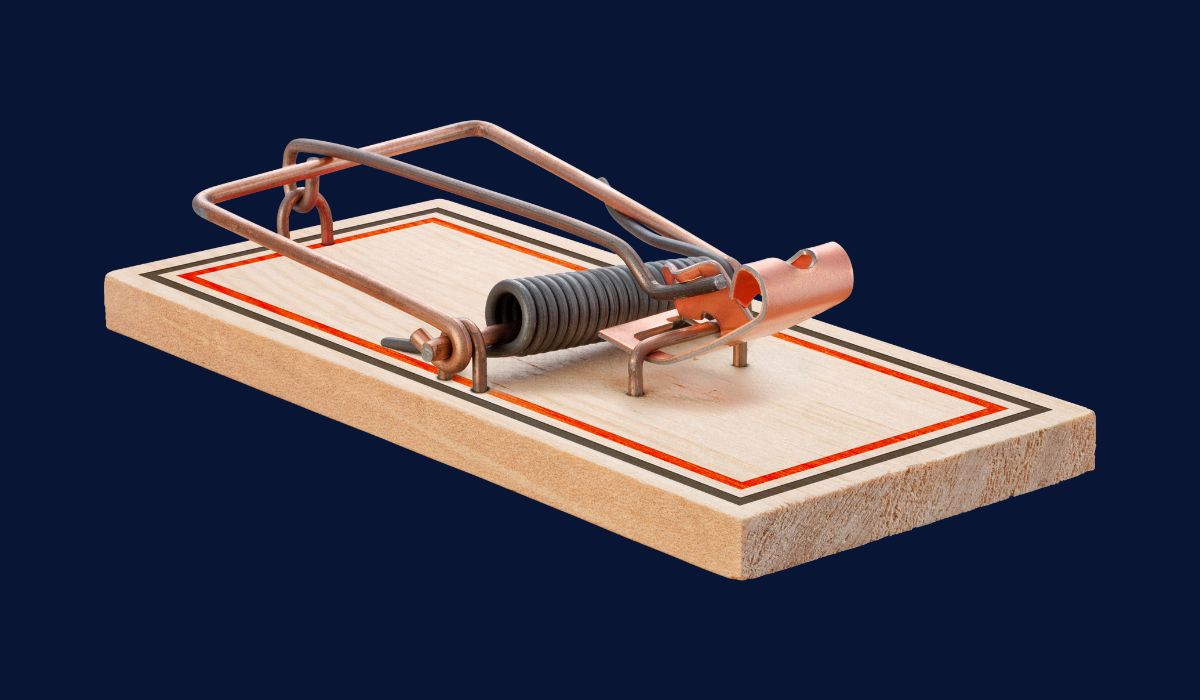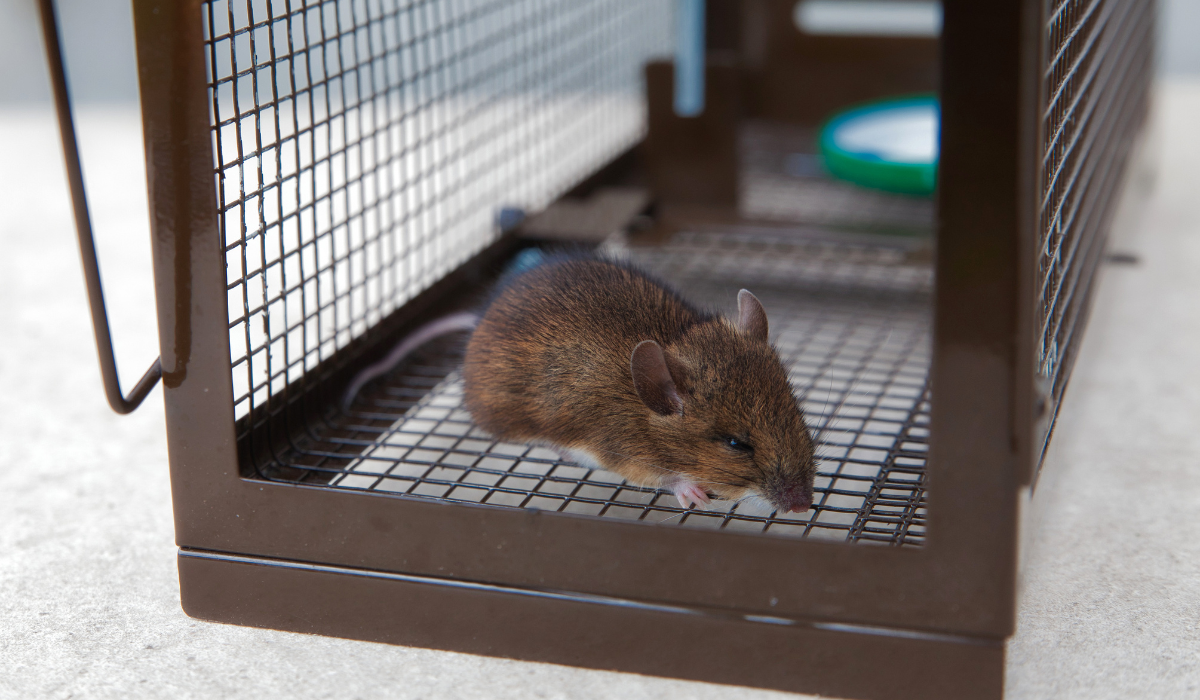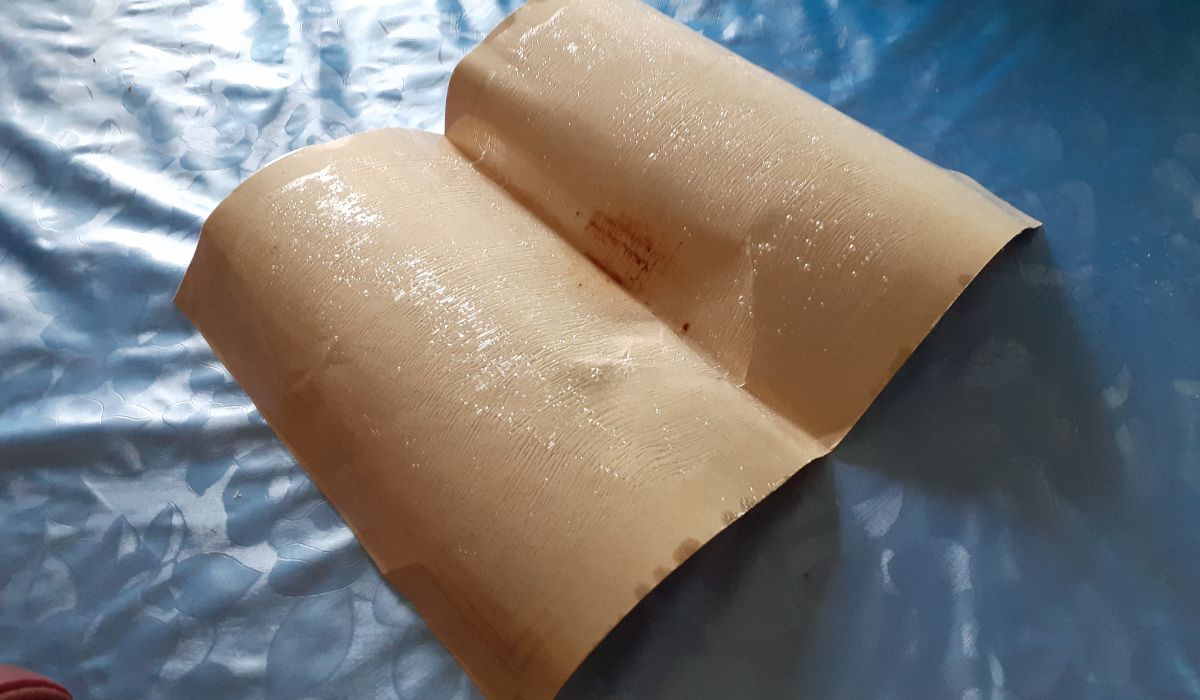How to Get Rid of Rats Without Using Poison
Dealing with rat infestations doesn't mean you have to use poison or rodenticides, which can be harmful to pets, children, and wildlife, not to mention handling dead rodents is a nasty business.
Instead, focus on making your space less inviting to rats. Secure your trash, remove leftover pet food promptly, and remove standing water. Seal up any cracks or openings to keep them out for good.
Have you considered the role that natural predators such as owls and cats might play in controlling the rat population? Keep reading to discover a range of strategies for maintaining a rat-free home.
Key Takeaways
- Humane mechanical traps and natural repellents such as essential oils and specific plants may eliminate rats without poison.
- Sealed entry points, secured food storage, effective trash management, limited water sources, and reduced clutter are vital practices to deter rats.
- Professional pest control services provide safe, thorough, and long-term solutions that utilize expertise to ensure complete rat removal.
- When DIY methods are inadequate or signs of a severe infestation appear, contact professional pest control experts.
How to Kill Rats Without Poison
Eliminating different rat species without using rat poison requires effective alternatives that are safer for pets and native wildlife.
The following non-toxic strategies can help control and prevent complicating rodent problems.
Deploy Mechanical Rat Traps
Mechanical rat traps offer a reliable way to control rat populations humanely. These traps are designed to kill instantly, minimizing suffering.
Here's a close look at the most common mechanical traps:
Types of Trap | Description | Baiting Tips |
Snap Traps
| Traditional spring-loaded traps kill rats on contact. | Bait with peanut butter or rat bait. |
Live Traps
| Enclosures that capture rats alive for release or humane disposal. | Use peanut butter, cheese, or bread. |
Glue Traps
| Sticky platforms that trap rats, which should then be humanely killed. | Place in high-traffic areas without bait. |
Utilize Repellent Devices
Repellent devices are non-toxic and can be effective in keeping rats away. Ultrasonic repellents emit a high-frequency sound that is distressing to rodents.
Consider these repellent devices:
- Ultrasonic Rodent Repeller: Emits sound waves to disrupt rat activity.
- Electromagnetic Repellent: Uses an electromagnetic field to deter rodents.
- Strobe Light Repellent: Disorients and discourages rats with flashing lights.
Apply Essential Oils
Essential oils such as peppermint and eucalyptus oil act as natural rat repellents. Rats dislike the strong scent and avoid areas where these oils are applied.
Here are tips for using essential oils to get rid of rats:
Essential Oils | Application Tip |
Peppermint Oil | Soak cotton balls and place them in affected areas. |
Eucalyptus Oil | Mix with water and spray in rat-prone locations. |
Citronella Oil | Use burners or diffusers to spread the scent. |
Grow Plant Repellents
Certain plants can deter rats naturally due to their strong scents. So, incorporating these into a garden or around the home can contribute to rat control methods.
Some effective plant repellents include:
- Mint: Rats avoid the intense aroma, so plant around the perimeter.
- Daffodils and Marigolds: Toxic plants that rats typically avoid.
Leverage Natural Predators
Natural predators play a significant role in keeping rat populations in check. Introducing or encouraging predators in the environment can be a practical component of rodent control.
Here are some natural predators that kill rodents, like Norway rats:
Natural Predators | Effectiveness |
Cats | Highly effective hunters. |
Owls | Can control large rat numbers. |
Dogs | Certain breeds excel at ratting. |
How to Prevent Future Rat Infestations
Once you've successfully eliminated rat infestations in your home, it's crucial to understand the necessary steps to keep rats out to prevent future infestations.
As homeowners, you must focus on eliminating access to their homes and reducing attractants that might lure these pests.
Seal Entry Points
Sealing entry points is a vital first step in fortifying a home against rodents. Here’s how you can do it:
Start by inspecting the exterior for holes or cracks.
Pay special attention to areas where utilities enter the home, gaps around doors and windows, and potential breaches in the foundation.
Use materials like steel wool, metal sheeting, or caulking to seal off these access points effectively.
Secure Food Sources
Food security is critical in deterring rats. To ensure your food stays fresh and protected, consider the following types of food and their ideal rat-proof storage solutions:
Food Types | Storage Container |
Grains and pasta | Airtight metal or glass containers |
Pet food | Sturdy bins with secure lids |
Fruits and vegetables | Refrigerator or sealed crates |
Observe Trash Management
Proper trash management can significantly reduce the likelihood of a rat problem. To keep your surroundings clean and prevent unwanted visitors, follow these steps:
- Secure the lids on all trash cans with heavy straps or locks.
- Ensure bins are clean and free of food residue so as not to attract pests.
- Regularly schedule trash pickup to avoid the accumulation of waste.
Eliminate Water Sources
Reducing available water sources is vital in controlling rat populations. Here are a few common areas to consider and the steps you can take to manage them:
Water Sources | Solution |
Leaky faucets | Repair immediately |
Pet water bowls | Empty and clean when not in use |
Bird feeders and baths | Change water frequently |
Reduce Clutter and Nesting Sites
Decreasing clutter denies rats the opportunity to establish nesting sites and all the problems they can cause. To make your home less inviting to unwanted guests, take these steps:
- Clear out unused cardboard boxes, especially in dark and undisturbed areas like garages and basements.
- Sort through piles of clothing and donate or dispose of items that are no longer in use.
- Regularly clean spaces to prevent the accumulation of debris that may entice rodents.
Maintain the Outdoor Areas
Pristine outdoor spaces can play a significant role in rodent prevention. To ensure your outdoor spaces are safe and secure from rodents, follow these clean-up tasks:
Tasks | Rationale |
Keep grass trimmed | Reduces hiding spots and potential nesting areas |
Remove debris | Eliminates materials that rats could use to build nests |
Secure outdoor buildings | Ensures sheds and garages are as sealed against rodents as the main house |
Professional Rat Control Services
You must contact professional rodent control experts when you notice the telltale signs of a rat infestation, such as rat droppings, gnawing marks, or frequent sightings.
Here are some reasons to consider professional rodent control:
- Health and Safety: Professionals use safe and humane methods to remove rats without the use of dangerous poisons.
- Thoroughness: They conduct a comprehensive inspection to identify all entry points and nests, ensuring no rat is left behind.
- Long-term Solutions: Not only do they remove the rats, but they also implement preventative measures to stop rats from returning.
- Time-Saving: Homeowners can save time as professionals handle pest problems efficiently and quickly.
- Expertise: Trained experts understand rat behaviors and can tailor control strategies specifically for the situation.
When to Consider Calling in the Pest Control Experts
Dealing with a rat infestation can be tricky, and sometimes, DIY methods fall short. If you discover many rats, it likely indicates a severe infestation. Consider calling in a professional pest control company (like us at Native Pest Management) in these circumstances.
As pest experts, we have access to more comprehensive tools and methods for managing large populations efficiently and safely. Moreover, we can help prevent future infestations by employing a comprehensive approach that’s more than mouse traps.



